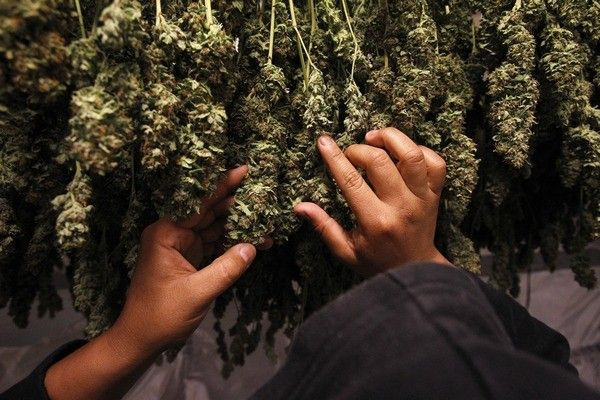U.S. Bans Marijuana Substitute 'Fake Pot' Chemicals

The United States Drug Enforcement Administration (DEA) said it has temporarily banned five chemicals used to make so-called fake pot products, perceived as legal alternatives to marijuana.
There has been a rapid and significant increase in abuse of these substances in the United States. This emergency action was necessary to prevent an imminent threat to public health and safety, the DEA said.
According to the DEA, these substances, known as synthetic cannabinoids, are biologically similar to THC, the active chemical in marijuana. These substances are not intended for human consumption.
Over the past couple of years, smokeable herbal products that contain these five THC-like synthetic cannabinoids are marketed as being legal and as providing a marijuana-like high, have become increasingly popular, particularly among teens and young adults.
The products are sold under such brand names as Spice, Red X Dawn and K2 and are labeled as incense to mask their intended purpose, according to the DEA.
The DEA exercised its emergency scheduling authority to control the five substances - JWH-018, JWH-073, JWH-200, CP-47,497 and cannabicyclohexanol. It designated them in Schedule I, the most restrictive category under the federal Controlled Substances Act. Schedule I substances are reserved for those substances with a high potential for abuse, no accepted medical use for treatment in the United States.
Young people are being harmed when they smoke these dangerous ‘fake pot’ products and wrongly equate the products' ‘legal’ retail availability with being ‘safe’,” said DEA Administrator Michele Leonhart. “Today’s action, while temporary, will reduce the number of young people being seen in hospital emergency rooms after ingesting these synthetic chemicals to get high.”
The agency, which proposed banning the substances in November, said these chemicals will be controlled for at least 12 months, with the possibility of a six month extension. The DEA and the United States Department of Health and Human Services (DHHS) will further study whether these chemicals should be permanently controlled.
As of January 31, 2011, 18 states in the United States and other countries have controlled one or more of the five synthetic cannabinoids.
© Copyright IBTimes 2024. All rights reserved.





















